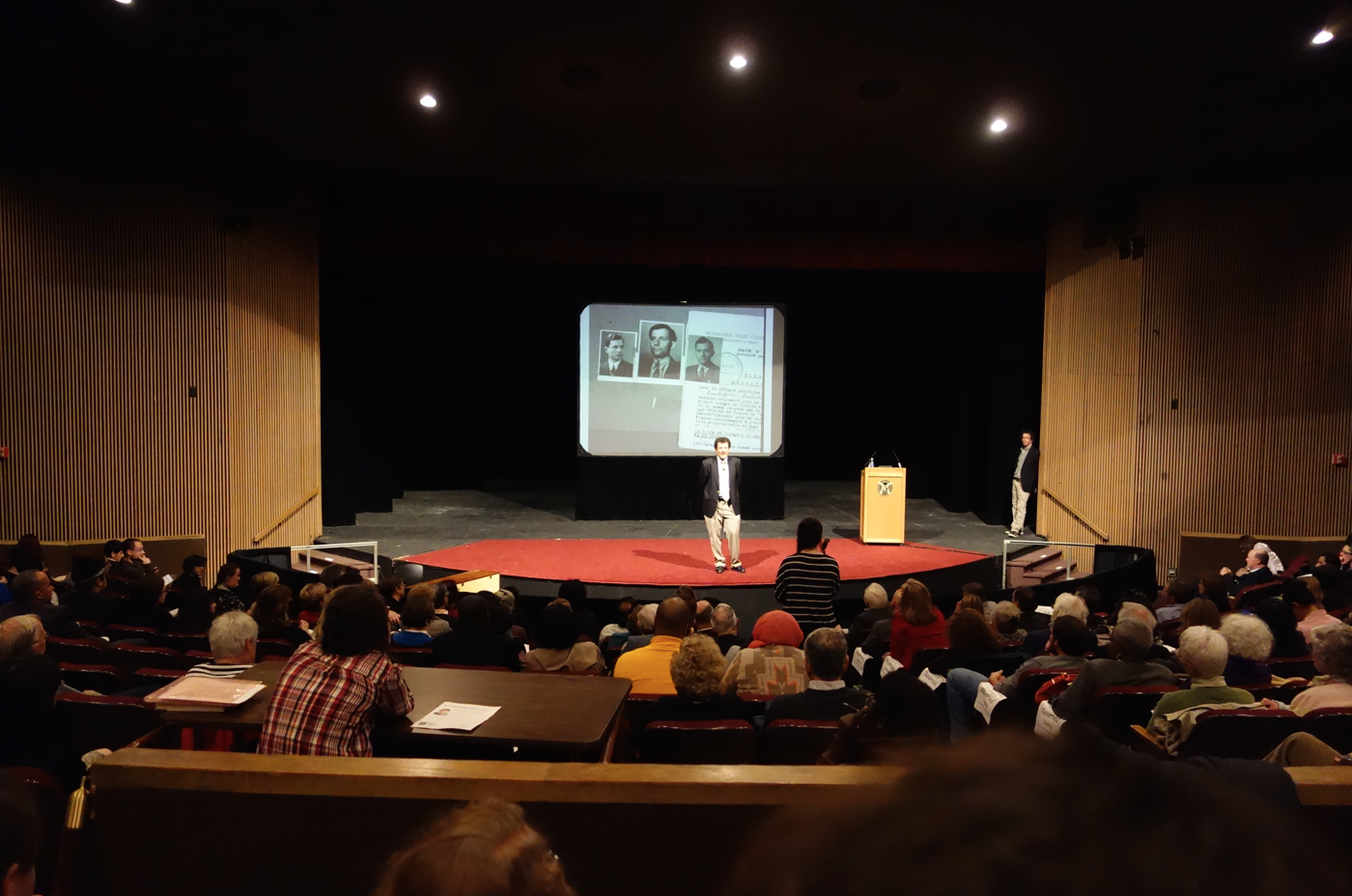 On
Monday night, I joined my friends Elaine and Nancy for MCC's Annual
Scholars' Day keynote address by Nicholas Kristof, one of my favorite
(Pulitzer Prize-winning) columnists for The New York Times.
The several hundred seat auditorium was almost filled to capacity,
and I had a nice chat with the student next to me, who looked only in
her early 20s, but revealed that she was the single mother of two
kids, aged 9 and 10, and a survivor of domestic violence. I had to
congratulate her for going back to get a degree, and working to
better life for herself and her children.
On
Monday night, I joined my friends Elaine and Nancy for MCC's Annual
Scholars' Day keynote address by Nicholas Kristof, one of my favorite
(Pulitzer Prize-winning) columnists for The New York Times.
The several hundred seat auditorium was almost filled to capacity,
and I had a nice chat with the student next to me, who looked only in
her early 20s, but revealed that she was the single mother of two
kids, aged 9 and 10, and a survivor of domestic violence. I had to
congratulate her for going back to get a degree, and working to
better life for herself and her children.
Anne
Kress, President of MCC, welcomed everyone and explained that 86
students participated in the Scholars' Day program, and a total of
$20,000 was awarded in scholarships by the MCC Foundation. When
Maureen Wolfe, a director of the Foundation, introduced Kristof, a
premier human rights journalist, she informed us that it was his
birthday! So of course when he took the stage, the entire audience
sang “Happy Birthday” to him.
Kristof
was enormously engaging as a speaker, and he shared both heartwarming
and heartbreaking stories. About the two Cambodian girls he bought
from a brothel, to return them to their families. About the best
fathers' day gift he ever got – a Gambian pouched rat bought in his
name (he met the rat when he visited Angola, where it worked sniffing
out land mines). About an education intervention in the developing
countries that is more cost effective than school-building: deworming
medicine, that kills the parasites that suck the nutrition from kids
and hinder their concentration.
He
shared startling statistics of poverty (nothing new to Rochester),
and urged liberals to shift their focus from inequality to
opportunity, since there is broader non-partisan agreement on the
latter. He cited numerous initiatives that have proven outcomes,
e.g., Nurse Family Partnership (which was started in Rochester, and
supports first-time moms), Reach Out & Read (which promotes early
literacy), and World Bicycle Relief (which provides bikes to the
underprivileged to “improve access to education, health care, and
economic opportunity”). He blamed the dearth of these initiatives
on an “empathy gap” (the affluent, who are mostly insulated from
the disadvantaged, tend to blame them for irresponsibility and poor
choices, rather than acknowledge that a person's zip code is a good
predictor of the range of available opportunities, as well as the
probability that he will be incarcerated). He judged the lack of
intervention, when we know something works, social irresponsibility.
And he encouraged us to “have the painful conversations,” to chip
away at our racial and gender biases.
Kristof
acknowledge that figuring out how to help, how to contribute, can be
daunting, and that we may feel our effect is just a “drop in the
bucket.” But not only do those drops add up, each drop has the
potential to help an individual, whose life can be transformed. Even though he was preaching to the choir, we
left feeling inspired, and encouraged that we can make a difference if we
try.

No comments:
Post a Comment